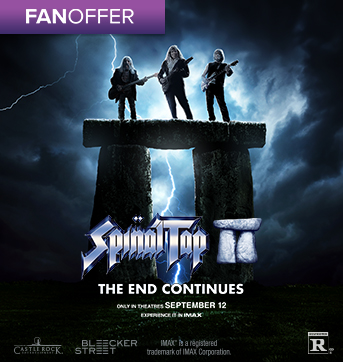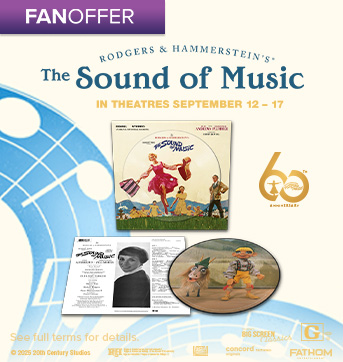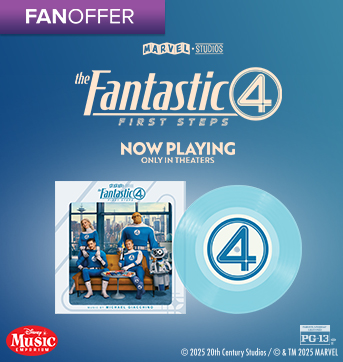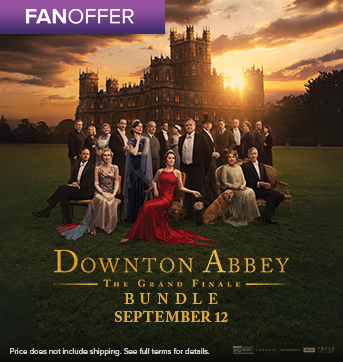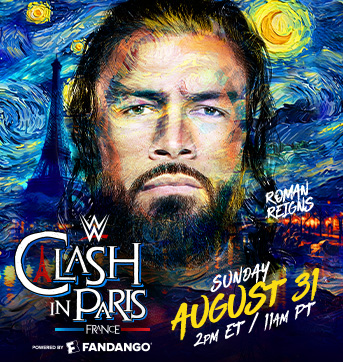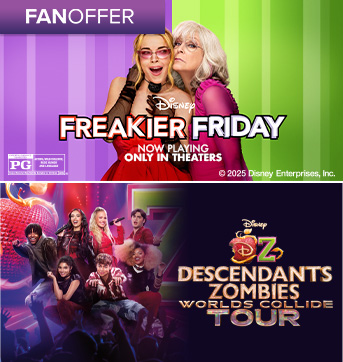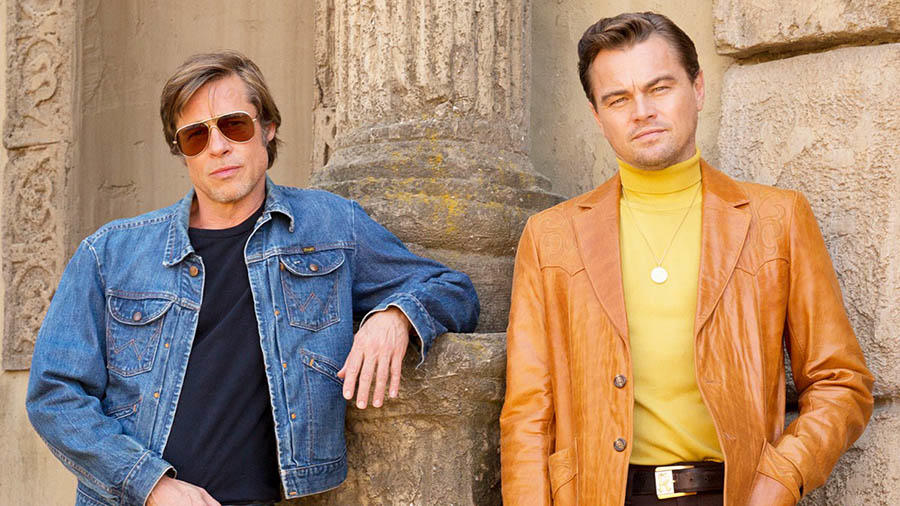
I watched 105 films released during this calendar year but still feel like I have dozens of blind spots. Through theatrical releases and VOD services we are getting an unprecedented number of viewing options each year. It is a boon of riches, a fact that makes making a top 10 list even more daunting than in past years.
Thematically, this year I was drawn to movies that used the in order to make a comment about our present. The variations of the past was rich this year, from Quentin Tarantino’s love letter to '60s entertainment to a passionate affair in the 18th century, to a massacre in the 18th century, to the formation of a country, and the introduction of capitalism to modern China (even the recent past, with Uncut Gems taking place in 2012 just so it could capitalize on the last year Kevin Garnett put up numbers for the Celtics). In looking backwards, I’d be remiss if I didn’t mention that Greta Gerwig’s Little Women does an immense update that both lives with Louisa May Alcott’s text of then and pulls us into a more enlightened modern understanding of the text now. I greatly respect so many films this year, but the films below are the ones that hit me the hardest and made me think the longest.
1. Portrait of a Lady on Fire
Céline Sciamma's Portrait of a Lady on Fire is everything you want from a period love story: highlighting the looks to observe and being caught, noting body language and what that means for desire, and making you feel like you're watching something dirty when it's actually just an armpit being fingered. It's also as close to the society of Lesbos as we'll ever see, using the setting of an isolated high society rock where a young woman (Adèle Haenel) staves off being married away by her mother by refusing to pose for her portrait to send to him. A female painter (Noémie Merlant) is brought in as a companion to take her on walks around the windswept island, so that she can observe her naturally and paint her from memory in order to seal a marriage for a nobleman in Milan. Because there are no consequential roles for men, Sciamma has made an achingly intimate feminine film that touches not just on desire, but also women who let their guard down to describe a friend as ugly, or to discuss their missed periods, or make each day that the matriarch is away count in states of undress. There is no score, so Portrait of a Lady on Fire earns its status as a major love story through quiet observations, with the exception of one stunning chant around a fire by the women who create tonics to rid of unwanted pregnancy and the magnificent use of a live Vivaldi performance.
There are so many resplendent touches and quiet observations to highlight the absence of female artists not because they weren’t making it but because of how access was limited, proper nouns prohibited, and needlework of still life was considered a woman passing the time, not making art — though it’s art just the same as a painting of fruit and flowers. The care in Portrait is summed up perfectly with the response to the question "you dreamt of me?" being "no, I thought of you." This is a grounded and divine love story in which you'll never be able to look at the number 28 again without your heart swelling, or hear the words "turn around" to know the sacrificial gift you’re giving to the other in their memory. A wonderful, wonderful film.
Where to Watch: Portrait of a Lady on Fire played one week in NY/LA for Oscar consideration and will be released into more markets February 14, 2020. Sign up for a FanAlert for when tickets go on sale.
2. Uncut Gems
The Safdie brothers’ follow-up to Good Time is a beguiling diamond. On the surface, Uncut Gems is a thrilling series of bad decisions by Adam Sandler’s Manhattan jeweler, who has a major gambling problem and is attempting to erase all his debts through one big bet on the Boston Celtics. It’s exciting, the ending is perfect, and it all unfolds like a parable on ego and pride. It's the type of movie where you groan and shake your head whenever Sandler’s compulsive tendencies kick in—swiping the basketball from a player at a practice, sexting his girlfriend from her closet, and using everyone’s money and possessions as his own capital to parlay into a bigger bet—which drives his every decision. Without being on-the-nose or screaming symbolism, the Safdies use the chaos of personalities in their film to be the best portrait of an addictive personality and a very thoughtful critique of capitalism. Sandler’s jeweler is a man who operates like an unregulated bank, allowing Lakeith Stanfield to “store” his jewelry in Sandler’s safe and bring high rolling clientele in (including Kevin Garnett), but Stanfield’s watches are missing, same as Garnett’s championship ring. He’s always taking advantage of every interaction as a means to attempt a bigger deal for himself. Watch Uncut Gems for the twists and turns, and let it continue to twist and turn in your mind afterward.
Where to Watch: In theaters now, expanding nationwide December 25.
3. Once Upon a Time… in Hollywood
Quentin Tarantino’s Once Upon a Time… in Hollywood was a personal journey this year. My first viewing left me wondering why? But it stayed with me. There are moments for Leonardo DiCaprio, on set with the child actor (Julia Butters), and Brad Pitt trying to discern whether the Manson clan are taking advantage of the old and blind ranch owner (Bruce Dern) that would not leave my mind. My second watch, knowing the journey over all, was a freeing experience. A hangout movie with built in dread of the destination simply because Sharon Tate (Margot Robbie) is a character, and we know what ultimately happened on Cielo Drive.
Tarantino takes the energy of the 60s, the love of movies above television, and ponders, 'what if it never ended?' And the answer is that storytelling—movies, films, music, books, the whole lot!—is the way to keep that energy alive, even if society has shifted to paranoia, distrust and cynicism. Pitt has perhaps never been better, carrying DiCaprio’s load, and Robbie is a revelation. Don’t let the write-ups about her lack of lines fool you, this is a marvelous performance of someone who hasn’t been beaten down by the industry, the town, and is still overjoyed to be a part of it. The industry is always on the precipice of a complete makeover on the macro level and Tarantino shows us how cruel and random failure feels on the micro level, in addition to how joyous it can be. In life, it’s an industry that can only save itself rather than the people in it but in Tarantino’s film, he can save them because that’s the power of movies.
Where to Watch: available on FandangoNOW for rent or purchase.
4. Peterloo
Peterloo debuted at Cannes 2018 and was released with very little fanfare this spring; the portrait of a moment—the lead up to the Peterloo Massacre of the early 19th century—has been treated like minor Mike Leigh, primarily because there isn't a lead character to attach yourself to. But I quite enjoyed this approach of moving through Manchester and all the various ways that the haves and have nots interact with each other. It's darkly humorous, such as the escalations within sentencing by the judge, months and years for stealing the smallest things from the establishment, and hanging for stealing someone's second coat. Peterloo is of course meant to reflect modern times, despite the historical setting, and the global fears of another economic revolution. Even with Brexit happening in his own country, Leigh defends every single person's right to vote, even if they are not informed. It's not their right to vote that's a problem, it's the flow of information and objective disinformation.
Another frequent complaint of Peterloo is the runtime, but that also becomes a hollow argument. This isn't a bloated film, but a precise film. Each scene is a necessary view into the moment. It's a portrait of a fractured time and each voice is heard, even the women who yell at the women who are marching. It's meant to entirely reflect our own global fractured time. There's not a single thing to cut. This is Mike Leigh popping off on every facet of structured society and that gets more than my vote, it’s made me march for this film for more than a calendar year.
Where to watch: Peterloo is available on Amazon Prime.
5. Ash Is Purest White
Jia Zhangke has long been one of China’s most political filmmakers. And his latest, a gangster love story that spans 17 years, is a post-modern look at how much China has changed in such a short time, about how ow collectives, even gangsters, were bound together and now it is a free-for-all. The centerpiece of the film is a violent confrontation that’s traumatic to watch which is only stopped because the gangster’s girlfriend (Tao Zhao, in one of the year’s best performances) steps out to fire a gun in the air — and guns are illegal to own in China. Though this saves the life of her lover (Liao Fan), it sentences her to 17 years in prison. Ash is Purest White is a meditation on time. Timing is everything, in love, in a country’s new identity. But being robbed of any time is a major, damn near insurmountable setback in love, in a country’s new identity; you have to fight tooth and nail to come back from losing time, particularly if your land of opportunity is moving while you’re firmly planted.
Where to watch: Ash Is Purest White is available to rent or own on FandangoNOW.
6. The Irishman
Martin Scorsese’s gangland epic is magnificently constructed. The Irishman is bookended by two sections that are more akin to his work on Casino, interested in the process of crime and using multiple set-ups for added narration that plays more like crime color commentating for the first act and aging alone for the third act. Robert De Niro moves through the entire movie like a ghost, running errands, doing what he’s told, but in the end he’s left with one massive unease. It’s the middle section, with Al Pacino as Jimmy Hoffa, where The Irishman settles into a singular movie that’s surrounded by a fascinating collage. It’s a beautiful device because it grants the extra heft to the third act. Everything slows down once Hoffa and the Teamsters become a part of De Niro’s world. Hoffa adds a touch of respectability and thus is afforded the respect that he cannot get from his family (and neither can Joe Pesci by association).
It’s a fascinating point in US history when labor unions and gangster loans went hand in hand but it’s also a magnificent comment on how far the sheen of respectability can go. The third act is De Niro struggling to make amends with his daughters and talking to anyone who’ll listen because they’re writing a book or his priest or his caretaker. Ultimately, no matter how big your life feels when you're living it, we're all going to be telling stories to whoever the hell will listen by the time the end approaches and everyone else has died. And it's those types of side details—what makes a good hot dog, the size of someone’s ears, little Peggy’s book report on Hoffa—that bookend the film that endear us to others, particularly when we're aware that we need some endearment, because most of what’s left is guilt.
Where to watch: The Irishman is streaming on Netflix.
7. The Nightingale
The Nightingale is a brutal colonial Australian film with rewards greater than seeing eventual justice done. Jennifer Kent puts most of the brutality within the first 20 minutes and it is a purposefully difficult watch; by the end of that section we've witnessed three rapes, one murder and one infanticide. But though this section is depraved, Kent does a number of interesting placements of the camera so as to not hover over it and leer. The infanticide is achieved through sound, the rapes turn to the woman's point of view not of the man with the ceiling or fireplace being stared into. And though there is a struggle to fight off all of these atrocities, Kent shows her body and hands go limp after her child has been killed; the man climbs off of her and complains that the mood was killed but Kent achieves a pretty remarkable feat of keeping us in this horrible moment without ever feeling exploitative. What comes next is revenge, but also an understanding that women, convicts, and natives all exist on the same exploitative plane.
In America, our issue movies are divided into separate camps as if their narratives aren’t similar: slavery, incarceration, Native Americans, gender inequality, etc. Kent, in a shocking follow-up to The Babadook, oppositely, takes the formation of a country, Australia, via convict labor and aboriginal extinction and lays the cost of it all where it belongs: entitled white men, blood on their hands throughout history because they feel owed a station in life above all others.
Where to watch: The Nightingale is available on Amazon Prime.
8. Ad Astra
Ad Astra is chilly and distant, emotionally, but purposefully always drawn to the next stage of the mission. It's about men who cannot connect and push themselves to the literal outer limits because of it. There are extra wrinkles, here, however, such as humankind replicating the worst parts of itself in space—the Moon is dotted with sandwich franchises and retail chains, there are resource wars throughout the galaxy outposts—and a distrust in governmental agencies who don't tell the full breadth of a mission, coverup misdeeds, and use Roy McBride's family lineage (Brad Pitt to Tommy Lee Jones) to get a potential response from Neptune, where harmful energy blasts are coming from. I also love that the psych evaluations are performed by A.I. as monitoring health, making open admissions to a non-human easier than humans simply because it’s just filed away as complete. And Pitt and Jones are a great father-son pair because Pitt, Tree of Life onward, has shed his romantic leading man and become an actor like Jones himself, where more is said in silence and the internal life that wears on his face, than in his dialogue or narration. And it's wholly appropriate for this film. Roy’s body runs like a machine but when the enterprise that runs that machine (NASA) blocks him from the emotional release he needs, his fortress of perfect heart rate and measured emotional responses collapses. Like his heart rate, he must go off grid to achieve his own needs.
There are many pithy dad jokes that can be made at the expense of James Gray’s film, but they're a disservice to such a gorgeous big screen picture that wrestles with big ideas; it balances being incredibly big and incredibly small, just like our world. As such, Ad Astra is worthy of beaming to the stars. Even if we are alone.
Where to watch: Ad Astra is available to rent or buy on FandangoNOW.
9. Asako I & II
Most of us are always split on what we want, wanting the best of both worlds. Ryûsuke Hamaguchi brilliantly illustrates that with Asako I & II. And while the desire to be both with an aloof, mysterious, reckless, and sensual lover and a more stable, reliable, wholly committed lover is an easy narrative to weave, what Hamaguchi does very well is create an atmosphere of absence.
Absence, if we're being honest, is how our memories work. We create a sense of a person, but it's rather muted; parts of memories dancing around an overall feeling, like chemicals in a reaction. For instance, Asako's (Erika Karata) attraction to Baku (Masahiro Higashide) is all consuming but almost entirely silent; they notice each other in an art gallery and they kiss before they speak, letting firecracker pops propel them into passion. When he wrecks his motorbike, we do not see the accident but instead see the scattered bike parts on the street in a slow pan to our two punch-drunk lovers kiss amongst the wreckage. Though the film flash forwards to a few years later after Baku has wandered off, our initial fragmented views of the initial high of a first love are presented as memories, an attraction that cannot be explained or easily observed through moments of connecting dialogue, but instead a chemical feeling is conveyed. We see Asako's bliss but she's almost absent, like she's watching her momentary happiness. Her second self is present, kind and giving, but it's not as much fun to observe. Thus, Hamaguchi plays with the faultiness of our memories that can capture an overall feeling but not retain the details and steadiness that sustain.
Where to watch: Asako I & II is available on Amazon Prime.
10. Parasite
The most economical film of the year is, without a doubt, Bong Joon Ho’s Parasite. Every line of dialogue, every setting, every moment serves a propulsive purpose. This is a lean film, trimmed of all fat and simmering in greatness. Parasite is two sides of a cinematic coin; the first half is a rousing character-driven social satire, the second is an expertly directed social thriller. It’s two halves about the haves and have-nots, two genres, and two viewings make the whole even more rewarding. The cast is phenomenal and Parasite will no doubt be a crowd-pleasing favorite from the decade it closes out. The less you know before you see it, the better. And the fact that so many audiences have relayed this exact phrase without spoiling the experience shows a restraint unparalleled in modern times. That restraint comes from across-the-board respect. So, you might be wondering why it’s not higher on my list — well, I appreciate a little mess and diversion, and Parasite is constructed around a plan that has no flaws, simply so it can pivot into the second half of the film, and though it’s all exciting, it’s all a little too perfect for me to put higher up on my list.
Where to watch: Parasite is currently playing in select theaters and is available to pre-order on FandangoNOW for January 14th release.
Honorable Mentions (in alphabetical order): A Hidden Life (dir: Terrence Malick; playing in select cities now, expanding throughout the month), Atlantics (dir: Mati Diop; currently streaming on Netflix) Glass (dir: M. Night Shyamalan; available on FandangoNOW), Her Smell (dir: Alex Ross Perry; available on FandangoNOW), Hustlers (dir: Lorene Scafaria; available on FandangoNOW), Knives Out (dir: Rian Johnson; in theaters now), Little Women (dir: Greta Gerwig; in theaters, December 25—tickets available now), Richard Jewell (in theaters now), The Souvenir (dir: Joanna Hogg; available on FandangoNOW), and Under the Silver Lake (dir: David Robert Mitchell; available on FandangoNOW


